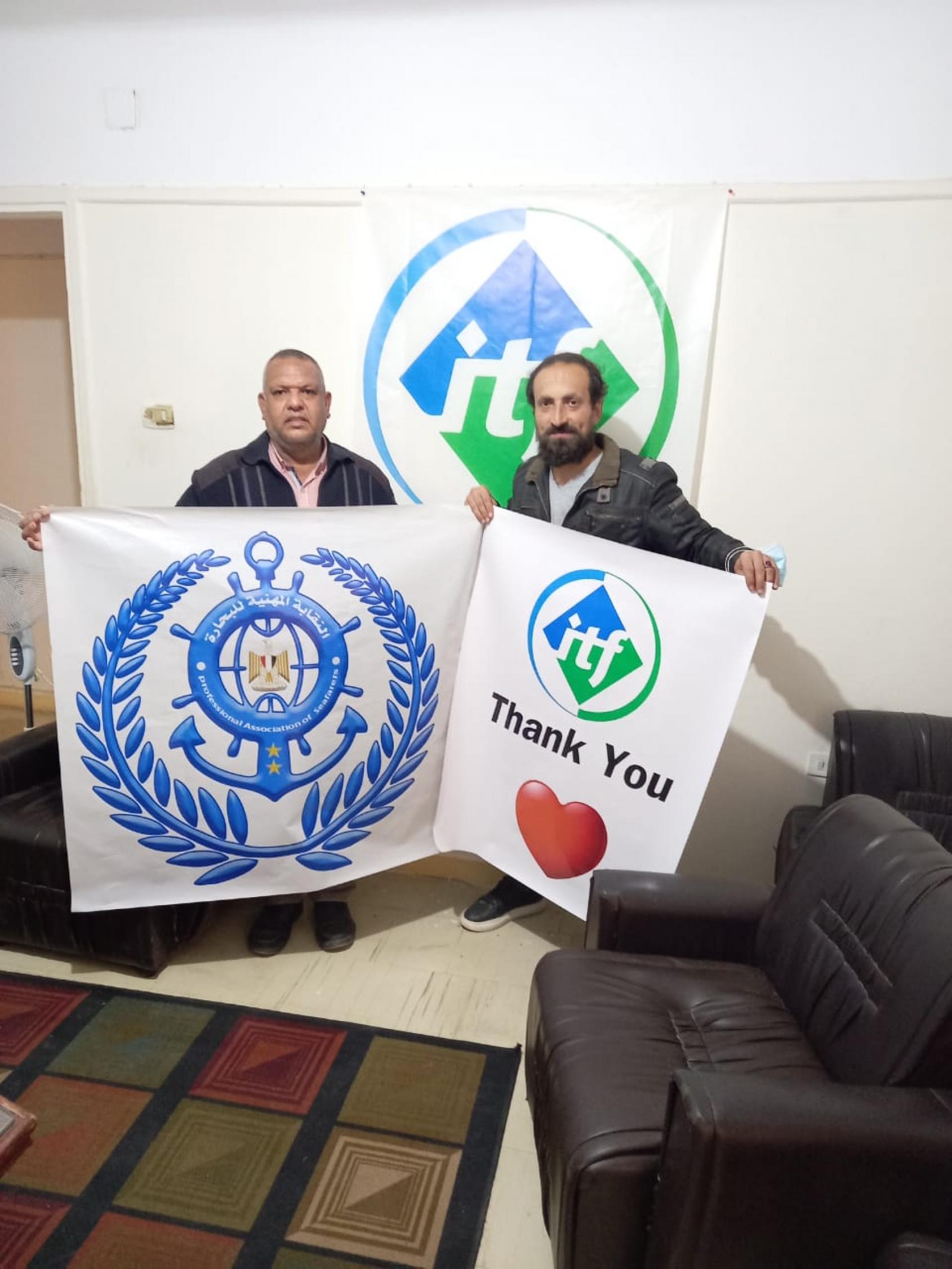
A seafarer was trapped alone on his ship without food or electricity for months, and no-one would help until the International Transport Workers’ Federation (ITF) intervened. He has finally made it home.
“This seafarer was abandoned in the truest sense of the word,” said Mohamed Arrachedi, the ITF’s Arab World and Iran Network Coordinator. “Until the ITF got involved, no-one seems to have spotted he was in trouble or done anything to help him. No-one seems to have cared.”
Ahmad Bakkour Khaled, who was employed as a cook, had been left alone on board the tug and supply vessel MV Mermaid (MMSI: 511100415) from 4 November, when the other 15 crew were repatriated, until 3 February 2022 when he himself was allowed to leave. The ship was without provisions or power. The seafarer was cold and was only able to feed himself by begging favours from nearby ships, only that way did he have anything to cook with. At one point, he had been without a shower for more than two weeks. He was not allowed ashore. He has health problems and badly needed to see a doctor.
The seafarer was allowed to disembark after the ITF intervened. Nasser Hussein the ITF union contact from ITF Egyptian affiliate the Professional Syndicate of Seafarers (PSS), arranged for a replacement seafarer to be the legal guard on the ship. After that, the Egyptian port authorities allowed Khaled to go home.
Despite the human cost for the seafarer, the focus seems to have been almost exclusively on making sure the ship remained manned. Arrachedi said port authorities in Egypt need to take steps to ensure seafarers are not put in this appalling situation again.
The ITF funds legal costs to recoup pay
The ITF helped the forgotten seafarer to get off the ship by liaising with the owners, the port authorities and others. The Federation’s inspectorate team and its union contact organised transport for him to his home elsewhere in Egypt where he lives with his family. When he left the ship, he was owed 9 months wages, the owner claiming to have no responsibility for him, apparently with no good reason. The ITF is funding his legal costs to recoup the unpaid salary.
Khaled, a Syrian national, is the main wage earner for his family — his wife, child and elderly mother rely on his pay. They too have been suffering as a result of his prolonged absence, with the family getting deeper and deeper into debt.
The ship was formally declared abandoned as of 1 July 2021.
Owners claim no knowledge
The ITF contacted the employer from details on Khaled’s contract, but they denied any knowledge, suggesting the contract must be fake. After a delay, the Egyptian port authorities allowed him to leave when someone was found by the ITF affiliate to act as guard on the ship. Arrachedi paid tribute to the head of the immigration department at the Port Tawfiq for their support in processing the case.
“Some owners and ship managers seem to operate with impunity,” he said. “Although Khaled was on board a ship along-side the port in Suez, no-one apparently noticed what he was going though or did anything about it. The Egyptian port and maritime authorities did finally respond when the ITF became involved, but one would like to think there are mechanisms to detect the abandonment of a seafarer and get things sorted more quickly.”
Abandonment is becoming increasingly common, Arrachedi points out. Last year we told the story of Mohammad Aisha, a seafarer who was trapped on his abandoned ship MV Aman (IMO 9215517) for more than four years at Suez. Before that, we reported on Vehbi Kara, captain of the MV Kenan Mete (IMO 8701935), who was kept an effective prisoner by an Egyptian maritime court. There are many other cases where abandonment is leading to extraordinary suffering for ordinary seafarers.
Don’t normalise abandonment
These are all extreme abuses of human rights, yet Arrachedi worries that this type of situation is becoming normalised.
“We shouldn’t become inured to the fate of abandoned seafarers,” he said. “Each new case should shock the whole world even further. With each new case the maritime industry and those with obligations under international law should work even harder to stop cases of abandonment happening,
“Owners seem to abandon ships with impunity, careless of the fate of the seafarers they employ. In this case, like so many others, they seem to disappear or hide in disreputable registries.”
The Suez Canal netted Egypt a record US$5.84 billion in the last tax year according to Osama Rabie, head of the Suez Canal Authority. This in a period when Covid-19 was at its height and the MV Ever Given ((IMO 9811000) blocked the canal.
“Despite these huge revenues, the country does not seem prepared to invest the necessary resources to quickly and effectively deal with the number of abandonment cases it sees,” said Steve Trowsdale, the ITF’s Inspectorate Coordinator.
“Given the volume of traffic moving through Egyptian waterways like the Suez, it is inevitable that abandonment cases will happen there. We’re demanding that their authorities build their capacity to more effectively respond to vessels cut loose by shipowners, so that people like Ahmad Bakkour Khaled are not made to pay the price of abandonment,” said Trowsdale.


မွတ္ခ်က္အသစ္မ်ားတင္ျခင္း